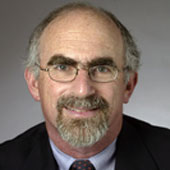Learning from Our “Youngers”
If young people ran the world, what issues would they focus on?
May 18, 2013

I suspect I’m not the only one who, as contributor to and consumer of foreign policy debates, at times wonders about our value added.
For all the urgent issues of the day, do we lose sight of deeper, more fundamental ones? And to the extent that we do address some, is it so within the bounds of conventional wisdom as to crowd out real wisdom?
We can learn a lot in both regards from the youth of the world. The questions they’re asking are inspiring. The answers they’re providing are humbling.
Over 160 students from around the world participated in the online essay contest run by the Carnegie Council on Ethics and International Affairs on “What is the greatest ethical challenge or dilemma facing the planet?” Some thoughts from the high school age winners:
“Our ‘ethics’ have turned us into magpies,” writes Anjana Aravind, an 18-year-old from India, expressing her concern about excessive consumerism. “We collect shiny objects and display them in our ‘nests’.”
Too many people, in her own society as well as in richer parts of the world, are thinking “only of the immediate end and how it affects them personally and not about the effect it has on their surroundings or society.”
Anjana makes a plea for sustainability and a way of thinking that “focuses more on the environmental and societal consequences of our actions than on instant pleasure.” She invokes Gandhi: “There is enough for everyone’s need, but not for everyone’s greed.”
Jae Woo Jang, a 16-year-old from the Philippines, grippingly raises human trafficking through Sarina’s story. A young girl from a poor family — “jobless parents who had seven mouths to feed” — Sarina was easy prey for “scouters.”
They come to small villages with offers of menial but legitimate jobs in the city but in fact are on the prowl for the sex trade.
Sarina ended up in the Angeles City red light district, packed in “with more than 20 other hog-tied girls,” made to service more than 10 clients per day.
Jae Woo met her after she’d made it to an NGO-protected safe house, seeking to recover from the “men who had stripped down every remaining piece of her dignity.”
The question Jae Woo poses hits hard: “If the international community and governments cannot provide individuals with the safety and the protection from physical abuse, what other progress and justice could be achieved?”
Swedish 17-year-old Jacob Karlsson Lagerros starts with the baseline recognition of how many 21st century threats and challenges “can neither be solved nor understood within the closed borders of a sovereign state.”
More than most grey-eminence multilateralists, Jacob also acknowledges the problem that “our cultural differences often provide incompatible frames of reference… The earth is teeming with an abundance of irreconcilable ideologies and radically diverse cultures, yet the international cooperation of those cultures is vital and inevitable.”
Jacob avoids one-world kumbayah at one extreme and clash of civilizations at the other, quite maturely coming down on the need “to learn how to be able to work together even when our starting points are fundamentally different, when our ideologies can barely coexist.”
For Joshua Thomas, an 18-year-old American from Kansas, the global flows from the personal.
He bravely tells the story of the alcoholism that killed his father and fractured his family, and how much easier it seemed at the time “to say silent, to say nothing” — but how complicit that made him feel in retrospect.
Joshua extrapolates: “Easier not to defend my classmates when they are teased about their sexual orientation… Easier not to demand equality for all in Mississippi in 1962… Easier not do demand equal rights for women in Saudi Arabia… Easier not to speak of the atrocities in Syria and demand change.”
And easier for us policy wonks to smile, pat on the head and say nice but naïve, wait until you get out in the “real world.” Or we can learn from them, and find ways to deal with rather than dismiss the ethical issues they raise.
Takeaways
Read previous

Obama’s Third Term
May 17, 2013
